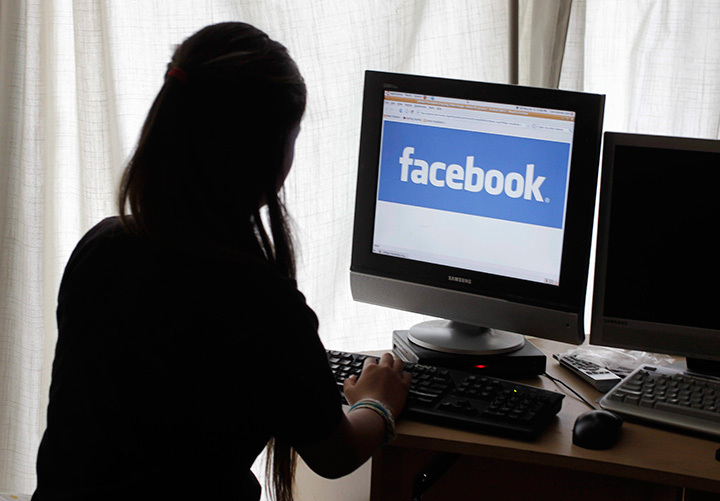TORONTO – Thousands of Sarah Bell’s online friends knew her only by her roller derby nickname, R’effin Adora Bell.

Facebook simply knew her as a brazen offender of its real-name policy.
Bell was locked out of her account for using a pseudonym – for security reasons, she says – and was shocked to learn how Facebook demanded she prove her identity.
Facebook insisted she share digital copies of her passport and driver’s licence to get her account back. After a five-week battle to maintain her privacy, she reluctantly gave in.
READ MORE: This is how Facebook is changing its ‘real names’ policy after harsh criticism
“Eventually I had no choice,” she says with a sigh while detailing last year’s incident.
“They shut down my primary mode of communication with people…. I couldn’t argue with them anymore.”
Bell’s experience is far from rare. Daily complaints on Facebook and Twitter suggest lockdowns in so-called “Facebook jail” have been a regular occurrence for years, and often for unclear reasons.
Technology lawyer David Fewer questions why the social media giant can’t verify users through other means. Just because it’s a condition of use doesn’t make it right, he says.
“There are other kinds of mechanisms available to Facebook to get after identities,” says Fewer, director of the Ottawa-based Canadian Internet Policy & Public Interest Clinic.
“Just because bad stuff happens that doesn’t mean that we all ought to be providing our identities and our identity documents just to use a service like this.”

Get daily National news
Facebook’s real-name policy came under intense criticism in 2014 after the company disabled the accounts of several San Francisco drag queens. That prompted assurances it would give suspected violators notice before taking action, and more support in gaining verification.
READ MORE: Facebook apologizes to drag performers for ‘real names’ policy
Toronto actor/director Michael Mahonen says he received neither when he was forced to submit his driver’s licence to prove his identity, even though he didn’t use a pseudonym.
He suspected another user complained about his posts discussing China’s treatment of Falun Gong practitioners, leaving him scrambling to find out why Google could no longer find his Facebook page.
“It essentially disappeared off the Internet altogether,” Mahonen says of last month’s incident. “It’s just too easy for anybody to do this to someone they don’t like.”
When he asked Facebook why he was locked out, he says he was told he wasn’t allowed to know.
Mahonen bristled at being asked for government identification, but says to Facebook’s credit, it was suggested he could black out some personal data including his licence number.
Facebook spokeswoman Meg Sinclair says account lockdowns usually happen when community standards are violated. She insists users are always notified when it happens.
“One of our rules since the very beginning is that it’s always been a place where people have to be their real identity online, that’s what differentiates Facebook from most other platforms,” says Sinclair.
“It’s one of our most important safety features. We’ve seen time and time again that people are much more respectful and more likely to follow rules and not bully or harass or use the Internet for poor purpose if they’re using their real names.”
READ MORE: Facebook clarifies rules about what you can and can’t post
Fewer notes that privacy laws prevent companies from keeping personal information longer than it requires. And by and large, organizations like Facebook generally don’t want to store such data since it increases their liabilities, with Fewer likening them to “ticking time bombs” waiting for a security breach.
Bell says she initially tried to regain access to her account by sending other documents proving her identity, including a trading card, links to articles with her name, and links to website bios.
That initially permitted her to re-enter her account, but she was locked out again when another administrator said she needed more proof.
“I can’t argue with them wanting to keep people safe, if that’s what it is, but I do feel like it’s odd that it’s so locked down,” says the 37-year-old, wondering why Facebook wouldn’t let her keep her real name private once it was verified.
“You shouldn’t have to advertise it.”
In her case, she says using her real name actually limited her social circle. She had built up more than 2,000 friends under her derby name, a moniker used at tournaments and games where she worked as an official.
“Suddenly there’s this ‘Sarah’ that is no longer being connected with anyone because nobody tags you, nobody invites you,” says Bell, who also hoped to keep her involvement in the sport secret from her employer.
“It totally halted my ability to communicate effectively with people and it was (part of) the slow decline of being as involved as I was.”
Mahonen says he was most upset by having to spend hours figuring out a way back into his account.
“I had to go mine through levels within levels of sublevels to figure out all of this stuff,” says the 51-year-old, insisting Facebook definitely did not contact him.
“I know they have more than a billion users in the world but that also means massive revenues. Other businesses have help that involve humans.”









Comments
Want to discuss? Please read our Commenting Policy first.